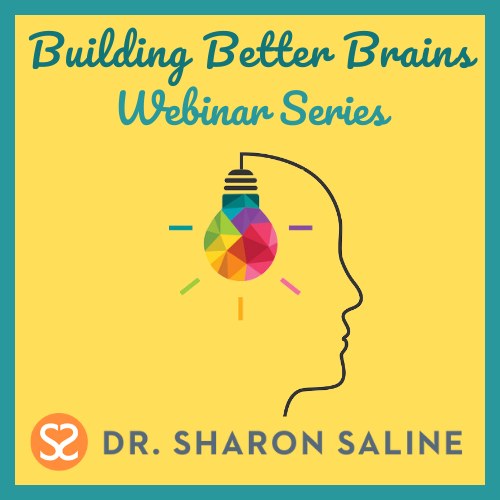3 Ways to Help Children and Teens Maintain Academic Progress During Summer Break
 “School’s over. YAY! I have no homework today!” Do these words sound familiar? Most children and teens with ADHD (and without it) are thrilled to have a break from academics and enjoy their summer–their free time. Yet, children with learning challenges can lose some of the important gains they made over the school year if they procrastinate and don’t continue use those skills. In order to ensure a smooth transition into the next school year, help your child with ADHD maintain academic progress during their summer vacation by practicing skills they’ve developed up to now. Here are three ways you can encourage your child to maintain those gains without “ruining” their summer break with unwanted schoolwork.
“School’s over. YAY! I have no homework today!” Do these words sound familiar? Most children and teens with ADHD (and without it) are thrilled to have a break from academics and enjoy their summer–their free time. Yet, children with learning challenges can lose some of the important gains they made over the school year if they procrastinate and don’t continue use those skills. In order to ensure a smooth transition into the next school year, help your child with ADHD maintain academic progress during their summer vacation by practicing skills they’ve developed up to now. Here are three ways you can encourage your child to maintain those gains without “ruining” their summer break with unwanted schoolwork.
3 Ways Parents Can Encourage Ongoing Learning
1. Set reasonable goals
Set reasonable goals based on your knowledge of your child’s academic performance as well as their own perceptions. Start with a conversation about how practicing acquired skills in the summer will benefit them in the fall. Explain that maintaining academic progress differs from learning new skills and it’s the preservation that matters most during the summer. Let go of any notions of teaching your children or teens with ADHD this or that new academic skill. Instead, focus on what they have already mastered. For elementary school students Review their report cards and any relevant work from the year to assist you in creating your goals. Find some books your child may want to read and some online resources or worksheets. As much as possible, set aside time for you and your child to do this work together. Find ways to make this a pleasant activity instead of a chore. For middle and high school students  Children or teens with ADHD may already have summer homework so you can sit down and plan out their work strategy for completing it in a timely fashion and maintain those academic gains. If they don’t have homework from school, collaborate with your teen on setting goals for reading, standardized test prep or other relevant work. Stay organized by using a calendar and emphasize the importance of NOT leaving things until late August to avoid a crisis.
Children or teens with ADHD may already have summer homework so you can sit down and plan out their work strategy for completing it in a timely fashion and maintain those academic gains. If they don’t have homework from school, collaborate with your teen on setting goals for reading, standardized test prep or other relevant work. Stay organized by using a calendar and emphasize the importance of NOT leaving things until late August to avoid a crisis.
2. Find materials that meet them where they are
Since the goal is upholding and strengthening what your son or daughter has already grasped, find materials that meet them where they are. This means finding materials and resources that are age- and level-appropriate. You only want to reinforce their learning up to now, so resist the urge to get a head-start on next year’s curriculum. For elementary school students Elementary school kids may like selecting books in a series that they have already started. They may also like getting a math workbook or finding an online math or science program to review the subjects in a game format. Many libraries compile summer reading lists by age group and have summer reading challenges. Take advantage of these helpful local resources to motivate your child. For middle and high school students Middle and high school kids can always benefit from reading a compelling book. Offer to help your child find something that matches their interests. You could even read the book simultaneously and then casually talk about it with them while driving in the car together or doing the dishes. In general, reading ANYTHING is a great idea–whether it’s a mystery, graphic novel or Minecraft story. Magazines and audiobooks count too. Sometimes reading on an electronic device like a Kindle or Nook has added benefits such as keeping them focused on one small page at a time and using an electronic device.
3. Agree on daily minimums
 Talk with your child or teen with ADHD about the minimum amount of time each day or week to do this maintenance program. This does not mean debating its value; it means agreeing on working for at least 15 minutes a day or an hour a week or whatever you decide together. If you need to incentivize the activity, then link doing the work to something they want to do. For example, “Okay, we can play catch after you read for 20 minutes.” Or, “You can watch your show after you do this math game.” Or, “You can have the car when you can tell me what happened in the last chapter.” Remember to be as creative and positive as you can be in setting age-appropriate goals and incentives. These tasks don’t have to be painful and can be framed as important continuation of cognitive growth. You may need to get involved and help manage your child’s activities, so approach this as a bonding opportunity. Enjoy this special time of connecting with your family. Happy summer!
Talk with your child or teen with ADHD about the minimum amount of time each day or week to do this maintenance program. This does not mean debating its value; it means agreeing on working for at least 15 minutes a day or an hour a week or whatever you decide together. If you need to incentivize the activity, then link doing the work to something they want to do. For example, “Okay, we can play catch after you read for 20 minutes.” Or, “You can watch your show after you do this math game.” Or, “You can have the car when you can tell me what happened in the last chapter.” Remember to be as creative and positive as you can be in setting age-appropriate goals and incentives. These tasks don’t have to be painful and can be framed as important continuation of cognitive growth. You may need to get involved and help manage your child’s activities, so approach this as a bonding opportunity. Enjoy this special time of connecting with your family. Happy summer! 
Follow me on social media: YouTube, Facebook, Twitter, Instagram.
Coaching/Counseling | Presentation/Workshops | Podcast Interviews | Subscribe to our newsletter
Read more blog posts:
- Summer Vacations With ADHD: 5 Beat The Heat Tips for Families
- 6 Tips for Parenting College Students With ADHD During Summer Break
Learn More with Dr. Saline’s Webinars:

- Defeating the Worry Monster: Tips and tools for helping elementary school children with ADHD and anxiety
- Beyond High School Graduation: How to help neurodivergent teens prepare for their next chapter
- Contact Dr. Saline to be a speaker at your event! Click here
Attendee Feedback | Upcoming Webinars | Dr. Saline’s YouTube
Watch on Dr. Saline’s YouTube Channel:
- Meet Dr. Sharon Saline, ADHD and Neurodiversity Family Therapist
- How to Improve Focus and Get Stuff Done with ADHD
- ADHD Communication Tips
Sign-up for my newsletter today and receive 10% off!
